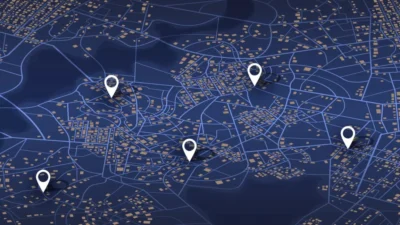Location data firm helps US police find out when suspects visited their doctor

A location-tracking company that sells its services to police departments is apparently using addresses and coordinates of doctors’ and lawyers’ offices and other types of locations to help cops compile lists of places visited by suspects, according to a 404 Media report published today.
Fog Data Science, which says it “harness[es] the power of data to safeguard national security and provide law enforcement with actionable intelligence,” has a “Project Intake Form” that asks police for locations where potential suspects and their mobile devices might be found.
Who needs a surveillance state when the data can just be purchased by the government?
This all comes down to the power of aggregating lots of metadata. If one takes just a single app like WhatsApp where the T&C’s allow for a full range of metadata to be collected by the app and passed upstream to Meta, who leaks data to 3rd parties, it is very easy to see how all this is possible. WhatsApp (just as an example as it is not known whether WhatsApp is the source of this data) knows who you talk to, when you talk to them, where you are exactly, where you live, how often you use your phone, what roads you travel on, where you visit, and lost more. It may not be able to read your E2EE messages, but it knows everything else, and its users have given consent for the data to be passed to 3rd parties.
I really have no idea how such information can be allowed to be traded and sold to interested parties. Many countries only allow such data to be collected and provided to law enforcement after a court order is obtained by law enforcement. As TikTok is still Chinese owned, I’m doubting if this data is being provided by TikTok to US data brokers. It is more likely US owned social networks providing this data themselves (purely my guess, though).
I can see why more and more users are distrusting these companies which provide free services, and then sell their data. The thing is, if law enforcement and governments are buying the data to get around their own legal restrictions, I just don’t see this situation really changing.
As users, we need to shun the use of such services (which is why I deleted my WhatsApp account when the T&C’s changed). It is also worth trying to rather use social networks that fall under the legislation of more privacy-friendly countries. Which also makes me a bit suspicious of why the US wants to maybe force the sale of TikTok to a US company… If that happens, I’ll be deleting my TikTok account too.
It seems more and more to me that social networks are the ideal way to find out who goes where and who they are communicating with… There is certainly lots of economic value in this, otherwise data brokers would not be doing such a roaring trade. They should just be aware though that they are very likely breaking the privacy laws of many non-US countries (not just the EU) if those citizens data is being sold in the USA. It’s time these other countries woke up and took note of what is going on.
See arstechnica.com/tech-policy/20…
#Blog, #privacy, #technology, #tracking
There are no comments yet.